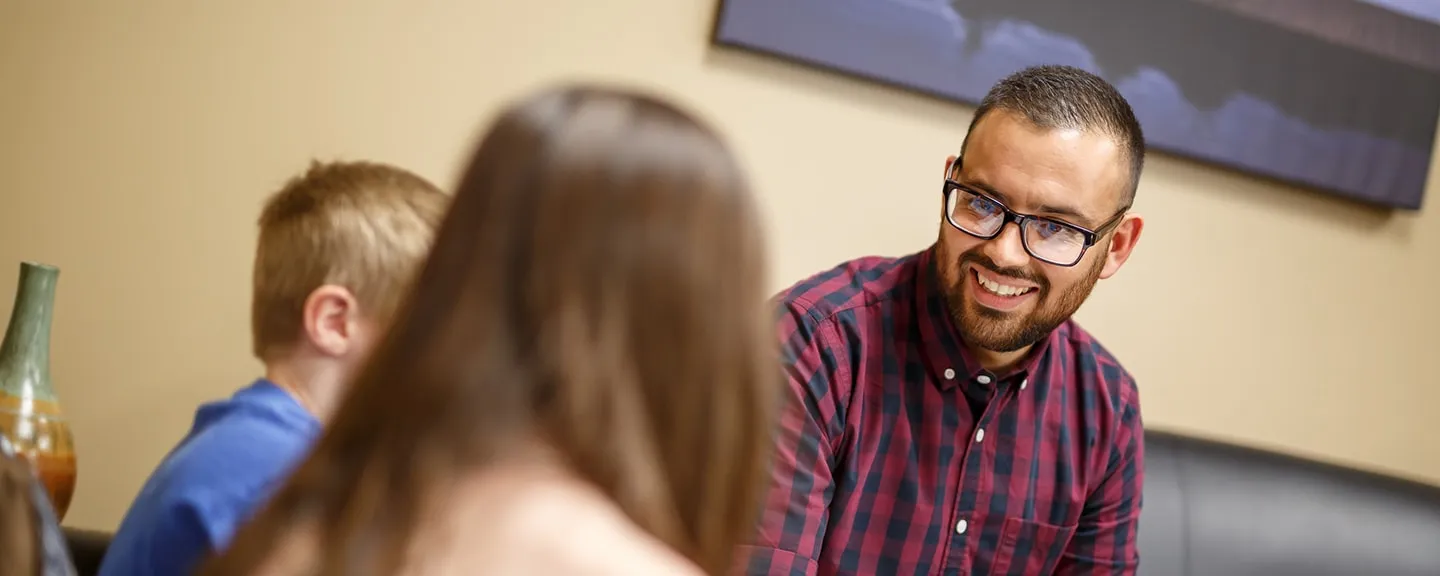- Home
- >
- APU Articles
- >
- News Article
4 Tips for Advancing Your Social Work Career with a Master’s Degree
July 31, 2018 | Written By Ana Felce

There are many benefits to pursuing a master’s degree in social work, including higher pay, increased job security, and most important, the ability to provide meaningful support to individuals and communities you work with—but there are certain aspects to look for when applying for a program. If you’re thinking about working toward an MSW degree, the following four tips can help you get started.
1. Research Program Courses and Electives
The growing need for social workers is evident. According to the Bureau of Labor Statistics, the field is projected to grow 16 percent by 2026, which is more than twice the average growth rate for all occupations.
Whether you pursue a career in therapy, crisis prevention and intervention, nonprofit leadership, social justice, or another field, a Master in Social Work degree can give you the tools you need to make a difference. To make the most of your experience, find a program that values your interests and offers courses that will help you build the skills necessary to pursue your specific track.
For example, the MSW program at Azusa Pacific University allows students to choose a specialized track, so you can steer your social work career in the direction you want. You can focus solely on clinical work or, if you have leadership ambitions, focus on program leadership and administration.
2. Evaluate Program Faculty and Professors
It is essential to find a program where the faculty’s first priority is providing a quality education to students. It’s a good idea to look for professors who not only conduct research that benefits the field of social work, but who have experience in the field and bring that knowledge back to the classroom. This is key to having a successful graduate school experience.
Mary Rawlings, Ph.D., LCSW, chair and professor in the Department of Social Work at APU, understands the importance of student satisfaction when it comes to the classroom experience. “Each year, in our student exit survey, students note how much the faculty really care about the students and their development,” she notes. “In our program, students really feel like they are able to get to know and engage with the faculty as they develop the skills they need to serve as competent social work professionals.”
Meet the Faculty: Mary Rawlings, PhD, LCSW
3. Look for CSWE Accreditation
Before you’re able to start your professional social work career, most states require some sort of licensure after graduation in order to practice in that state. However, to sit for the licensing exam, you must have graduated from a program that’s accredited by the Council on Social Work Education (CSWE). For this reason, it’s wise to seek out programs that have the distinction.
“[An] advantage of CSWE accreditation is that it is national,” adds Rawlings. “So, if someone wants to move out of state after graduating, accreditation assures future employers their training meets the same standards as other programs.”
4. Get Hands-On Experience
As the demand for social workers continues to grow, employers in both the private and public sectors will continue to seek the most highly qualified candidates to fill those positions. According to Rawlings, it is vitally important to get real-world experience while studying.
“Social work practice is a developed skill that takes experience, supervision, and feedback,” says Rawlings. “Field internships provide that opportunity for skill development. I like to think of it as similar to learning to play the piano—it takes time, training, and practice to be good.”
If you’re evaluating different master’s programs, it’s important to consider what kind of practice you’ll get outside of the classroom. The social work program at APU is CSWE accredited and contracts with various agencies, so students don’t have to find placements on their own. With approximately 250 agencies across five counties in Southern California, the department can refer students to fieldwork sites near where they live. APU even provides additional support (and training) to prepare students as they begin interviewing with agencies to secure a placement, so they can step confidently into the field.